Arbitration
Trial Court Can't Revisit Issue Of Limitation Once Delay Has Been Condoned By High Court: Delhi High Court
The Delhi High Court dismissed an appeal under section 37 of the Arbitration and Conciliation Act, 1996 (Arbitration Act) filed by Delhi Transco Limited (DTL) upholding an arbitral award in favour of M/s Hindustan Urban Infrastructure Limited. The Court further held that once an issue of limitation has already been decided by the High Court and the delay in filing the petition under...
Forced Shift Of Arbitration Venue Without Consent Of Party Amounts To Perversity: Telangana High Court
The Telangana High Court has held that the forced shift of the Arbitration Venue without the consent of a party amounts to perversity and patent lack of inherent jurisdiction.The order was passed in a writ petition, challenging a procedural order, by way of which the venue of the 'Closing hearing' was moved from New Delhi to IDRC in London without considering the objections of...
When High Court Appoints, High Court Extends: Clarifying Jurisdictional Anomaly Under Section 29A Of Arbitration Act
When Parliament introduced Section 29A into the Arbitration and Conciliation Act, 1996 (“Arbitration Act”) it was hailed as a reform that would make arbitration faster and more disciplined.Section 29A of the Arbitration Act mandates that an arbitral award must be passed within twelve months from the date of completion of pleadings. This period may be further extended by mutual consent of the parties for an additional six months. Once this statutory period expires, the mandate of the arbitral...
[Arbitration Act] Limitation For Filing S.11 Application To Be Calculated From Date Of S.21 Notice, Not From Date Of Dispute: Rajasthan HC
The Rajasthan High Court, Jaipur Bench, has held that the limitation for filing a Section 11 application under the A&C Act would be calculated from the date of serving the Section 21 notice to the other side and not from the date when the cause of action had arisen. The bench of Justice Anoop Kumar Dhand was hearing a Section 11 application praying for the appointment of...
Right To Seek Arbitration Not Lost Just Because Arbitration Clause Became Inoperable Due To Statutory Amendment: Supreme Court
The Supreme Court held that the invalidity or inoperability of an arbitration clause, such as one naming an ineligible arbitrator under Section 12(5) of the Arbitration and Conciliation Act, 1996, does not nullify the underlying arbitration agreement between the parties. The Court clarified that in such cases, the Court is empowered to step in and appoint a neutral arbitrator under Section...
[Arbitration Act] S.11 Application Is Maintainable Even Without Notice U/S 21 If Other Party Is Aware Of Dispute: Rajasthan High Court
The Rajasthan High Court Jaipur Bench has held that a Section 11 petition under the A&C Act without issuing the notice invoking arbitration (“NIA”) u/s 21 of the A&C Act would be maintainable if the Respondents were aware of the dispute being referred to arbitration. The bench noted that the Respondents were well-versed in the dispute raised by the Petitioner. They could...
HCL Infosystems Wins ₹102.81 Crore Arbitral Award Against UIDAI
HCL Infosystems, a HCL Group company, informed the stock exchanges on Sunday that it has received a ₹102.81 crore arbitration award in its favour against the Unique Identification Authority of India (UIDAI).The award covers dues, deductions, and additional costs for Managed Service Provider (MSP) services provided between August 7, 2019, and August 6, 2021. It includes 10% annual interest up...
Power Of High Court To Extend Arbitrator's Mandate Is “Co-Extensive” With Power To Appoint Arbitrator: Calcutta HC
The Calcutta High Court has held that when an arbitrator is appointed by the High Court under section 11 of the Arbitration and Conciliation Act, 1996 (Arbitration Act), an application under section 29A(4) seeking extension of the mandate of the arbitrator can be entertained by the High Court only and not by the Principal Civil Court or Commercial Court having territorial jurisdiction...
Single Petition U/S 34 Of Arbitration Act Is Maintainable Against Composite Arbitral Award: Calcutta High Court
The Calcutta High Court has held that a single petition under section 34 of the Arbitration and Conciliation Act, 1996 (Arbitration Act) is maintainable challenging a composite arbitral award disposing of multiple references. A bench led by Justice Shampa Sarkar held that “the Court does not hesitate to hold that the learned arbitrator and the parties understood the proceeding before...
Arbitration Monthly Digest: September 2025
Supreme Court Arbitration | Delivery Of Award To Govt Official Not Connected With Case Doesn't Amount To Valid Service On State : Supreme Court Cause Title: M/S. MOTILAL AGARWALA Versus STATE OF WEST BENGAL & ANR. Citation : 2025 LiveLaw (SC) 867 The Supreme Court has clarified that when the government or one of its departments is a party to arbitration, delivery...
Proceedings For Conciliation & Arbitration Under MSME Act Cannot Be Clubbed: Bombay High Court
The Bombay High Court has set set aside two ex-parte orders passed by the Micro and Small Enterprises Facilitation Council (MSEFC), Daman holding that the council acted in breach of mandatory two stage procedures under the Micro, Small and Medium Enterprises Development Act, 2006 (“MSMED Act”). The court remitted the matter for fresh arbitration in accordance with law. A bench led...
[Arbitration Act] Doctrine Of Merger Inapplicable When Superior Forum Has Not Decided Issue In Question: Gujarat High Court
The Gujarat High Court held that the doctrine of merger does not preclude the decree holder from claiming post award interest at 18% under section 31(7)(b) of the Arbitration and Conciliation Act, 1996 (Arbitration Act). The court quashed an order passed by the Principal District Judge by which it rejected the review application. The court directed the State of Gujarat to recalculate and...



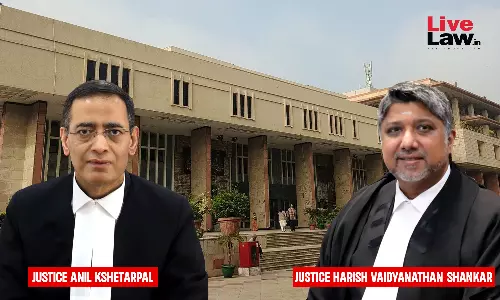
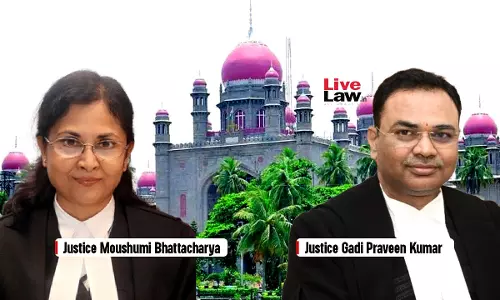
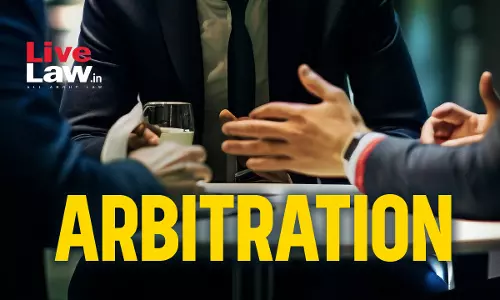
![[Arbitration Act] Limitation For Filing S.11 Application To Be Calculated From Date Of S.21 Notice, Not From Date Of Dispute: Rajasthan HC [Arbitration Act] Limitation For Filing S.11 Application To Be Calculated From Date Of S.21 Notice, Not From Date Of Dispute: Rajasthan HC](https://www.livelaw.in/h-upload/2023/05/28/500x300_474032-justice-anoop-kumar-dhand.webp)
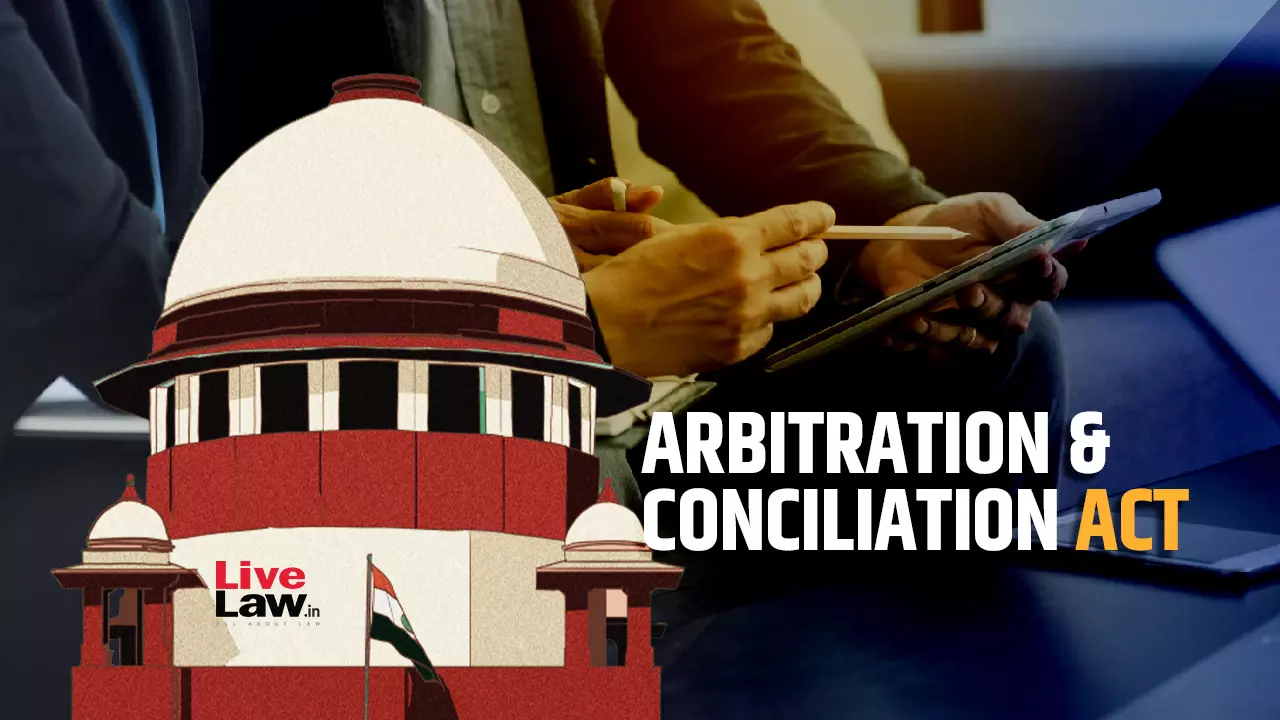
![[Arbitration Act] S.11 Application Is Maintainable Even Without Notice U/S 21 If Other Party Is Aware Of Dispute: Rajasthan High Court [Arbitration Act] S.11 Application Is Maintainable Even Without Notice U/S 21 If Other Party Is Aware Of Dispute: Rajasthan High Court](https://www.livelaw.in/h-upload/2024/04/09/500x300_533108-rajasthan-high-court-jaipur-bench-1.webp)
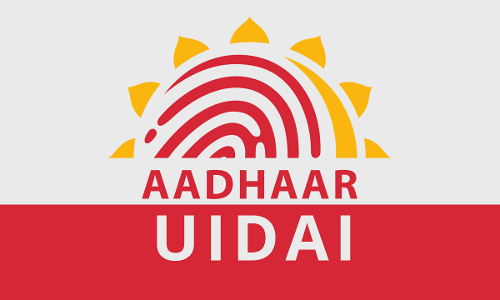
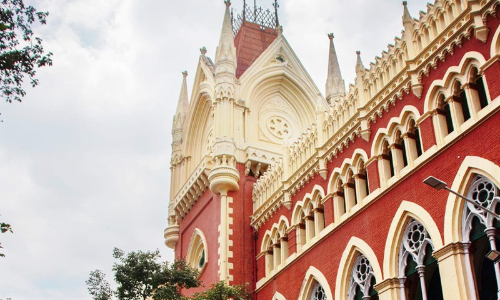
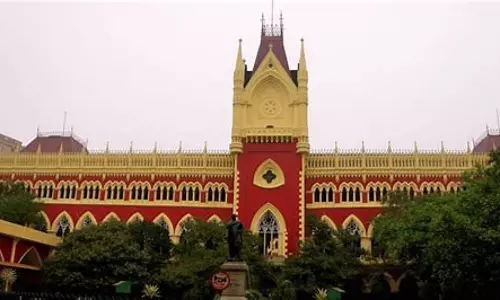
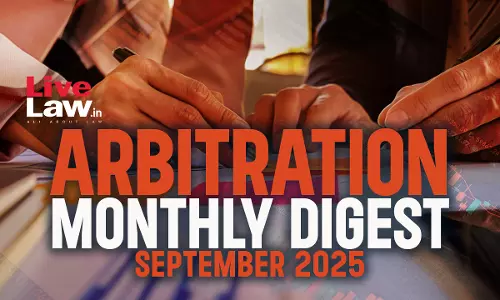
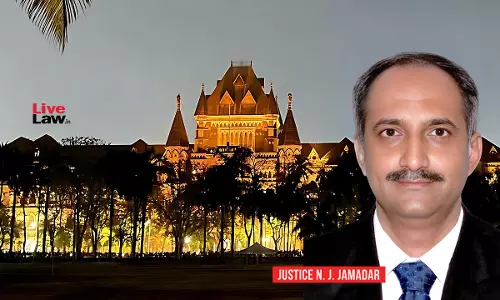
![[Arbitration Act] Doctrine Of Merger Inapplicable When Superior Forum Has Not Decided Issue In Question: Gujarat High Court [Arbitration Act] Doctrine Of Merger Inapplicable When Superior Forum Has Not Decided Issue In Question: Gujarat High Court](https://www.livelaw.in/h-upload/2025/09/27/500x300_623068-justice-maulik-jitendra-shelat-gujarat-high-court.webp)